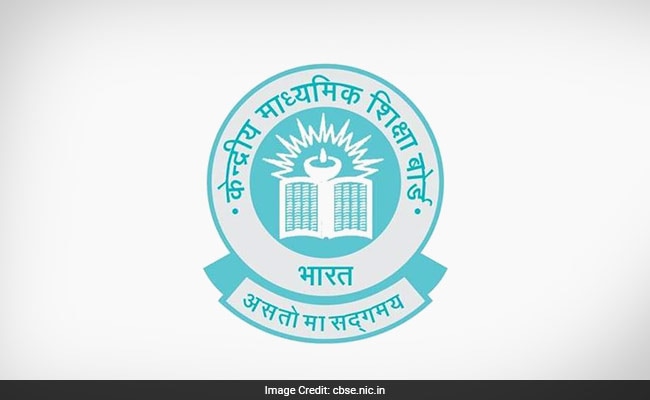CBSE Class 12 Maths paper: 'Easy and from NCERT, many students will get 100%'TOI-Online | Updated: Mar 21, 2018, 15:46 IST
NEW
DELHI: The Central Board of Secondary Education (CBSE) conducted the
Mathematics Examination for Class 12 Science stream students today,
March 20, 2018, at various exam centres across the country.
This
year seems to be good for the students, especially for those who are
appearing for the board examination as the difficulty level of most of
the papers is moderate or easy. Be it Humanities, Commerce or Science
stream, the questions asked so far are straight forward and from NCERT
books.
According to the the majority of the students coming out
from one of the examination centres in Delhi, the mathematics paper was
quite easy with questions mainly set from the NCERT book.
STUDENTS' REACTIONS
BHOPALAshutosh
Dubey of the Vikram Higher Secondary School said, "Formula-based
questions were tricky and paper was lengthy. I rushed through questions
because time was less and paper was lengthy.”
Ahmer Uzair of the
St Xavier School said, "The biggest issue we faced today was we had
prepared a lot besides NCERT. I feel like my coaching has gone waste
because everything was within the NCERT syllabus."
"It was not
that easy as I had expected. Section C and D were difficult. Calculus
question were difficult. I would say it was average paper but not easy, "
said Ananya Singh of GVN Public School.
St Paul School's Vishal
Dhode said, "Paper was slightly difficult and lengthy. I couldn't manage
time between questions. Difficulty level was not increased as compared
to last year's paper but few questions were tough."
NAGPURPalak
Pradhan of CPS Katol Road said, "The paper was moderate we were hoping
that it would be a difficult paper as Maths is a hard subject we did our
practice accordingly which helped us in solving the questions. Matrix
was the easiest part of the paper."
Another student of the same
school Lulua Master said, "The paper was medium hard. Matrix part was
easy. Section A was tough. Overall paper was easy."
Sakshi
Pusdeka of St. Vincent Palloti said, "The paper was moderate and lengthy
time-management would have helped us in more convenient way.
The
paper was quite tough for Dyandip Manwar of the same school. He said,
"Section A and Section C were quite hard as compared D. Section D was so
easy to solve. I completed my paper on time."
"Few questions were
more confusing for us. It was expected the paper would be lengthy but I
found it to be easy overall," she added.
Another student of the
same school, Shamal Dhawale said, "The paper was easy but lengthy, some
questions were tricky some students got confused while solving.
Probability was easy. Section A and C were tough. If we had more time
then it would have helped to solve accurately."
For Karan
Tandekar of KV Ajni School the paper was easier than the previous year.
"Section A was little bit tough but section B was easy. Vectors 3D was
easy but binary questions were hard. Paper was completed on time," said
Tandekar.
DELHIEvergreen Sr Sec School, Vasundhara Enclave
"The
paper was moderately easy. The questions were either from NCERT or from
previous years question papers. I am quite happy," said Harsha.
Another
student Shubham Aggarwal said, "The paper was easy. Questions were
NCERT-based. It was not lengthy. Students who prepared well should be
able to score good marks."
Evergreen's Vinay said, "The paper was easy though it demanded through knowledge of the concepts."
Mount Abu Public School, Rohini
Mohit Rawat said, "The mathematics paper was thoroughly from NCERT. Paper was easy."
"The
paper was balanced. Some questions that were tricky needed more time to
attempt. Most of the questions were from the NCERT," said Ajay
Maharana.
"The paper was on the easier side. Majority of the
questions were from NCERT syllabus. It was completed on time and
everyone got enough time to revise," said Arush Tandon.
Aayush said, "The paper was balanced and based on NCERT."
Manvi Jain said, "The questions were familiar only one or two tricky questions were there.
TEACHERS' REACTIONS"The
CBSE Class XII question paper of Mathematics 2017-18 is a balanced
paper. Around 60% questions are direct from NCERT textbook. Only 2-3
questions require a thorough reading for understanding. Children were
able to complete within the stipulated time," said Nitish Gupta (PGT
Maths) of Mount Abu Public School, Rohini, Delhi.
"Overall paper
is good and based on NCERT and thorough knowledge of NCERT textbook will
definitely help the students to score good marks. Students aspiring for
100 marks in this paper have a high probability of achieving it," Gupta
added.
"Maths paper for class XII was unexpectedly easier than
earlier years. The paper was mostly NCERT based. It was a student
friendly paper," said Rachna Budhiraja (PGT- Mathematics) of the
Evergreen Sr Sec School, Vasundhara Enclave, Delhi.
Maths teacher
Bina Pillai of Campion School Bhopal said, “The paper was so simple and
the good thing is 90% question were straight from NCERT textbook. I
don’t think any paper could have been so easier than this one and I was
not expecting it to be easy.”
“Paper was balanced and
most of the questions were NCERT Based but the problem is some students
might have find it difficult because they focus more on private
publishers rather than NCERT textbooks. Paper was a bit lengthy but not
tough at all,” said PGT Maths Sangeeta Yadav of St Joseph Idghah Hills
Bhopal
Brijesh Patail, Maths teacher, Sagar Public School
Bhopal said, “The paper was average and at least 85% questions were from
NCERT textbook. Questions were not tough but also not easy. I am
satisfied because I had advised my students to study from the textbook
only. I hope they secure good marks.”
Source : https://timesofindia.indiatimes.com/






